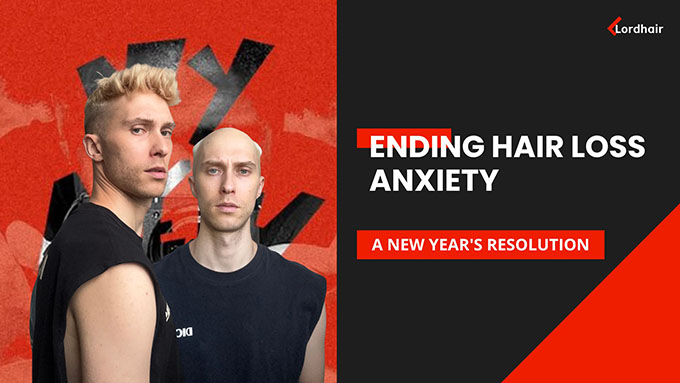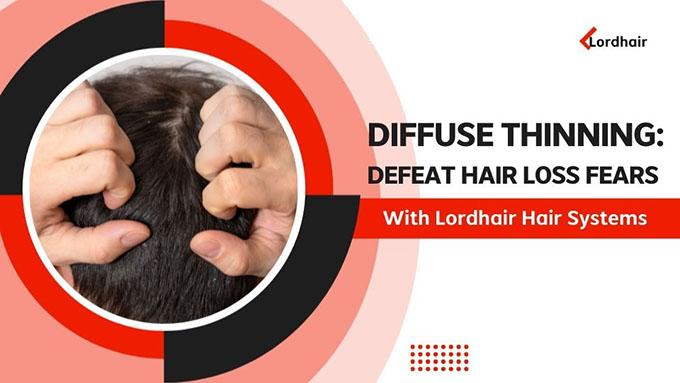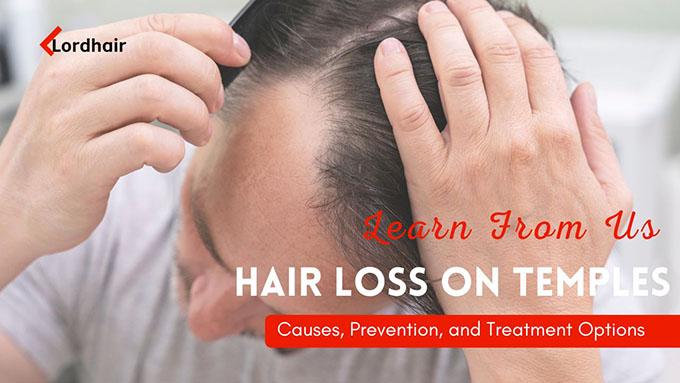Can Head and Shoulders Cause Hair Loss: Lordhair Looks at Facts
- Written by Victor Lordhair
- | Published Jun 14, 2024
- |
- 4 min read
 Listen to the full text
Listen to the full textWhat would you do when dandruff got you down and flaky? Millions may say Head and Shoulders! That white bottle sitting on your bathroom shelf has been the superhero for itchy scalps for decades. But lately, there’s been a villainous rumor swirling. Some say that Head and Shoulders - our dandruff defender - could be the secret culprit behind hair loss and thinning.
But is it really true? Is this shampoo making your once-luxurious hair to mysteriously go down the drain? Detective Lordhair has decided to solve this mystery!
In this blog, we will be putting Head and Shoulders under the magnifying glass, and tell you if it is the hidden villain behind your dwindling locks. Buckle up because we’re about to get to the root of the problem!
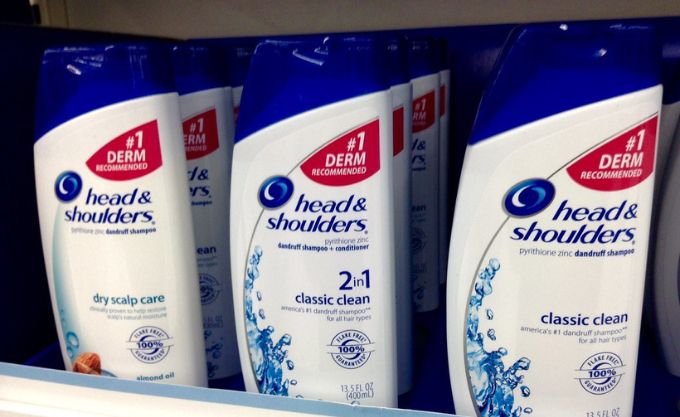
Is There a Link Between Head & Shoulders Shampoo and Hair Loss?
Alright, buckle up! Because it’s time to crack the case of hair loss triggered by Head & Shoulders shampoo. We bet you might be nervously eyeing that bottle on your shelf, wondering, “Is it the reason behind my thinning hair?” Well, there’s currently no solid evidence that classic Head and Shoulders shampoo directly contributes to hair loss.
Studies suggest the opposite, in fact. As per the report by Mangion, treating dandruff with this shampoo can actually improve hair growth for some people. That’s because a healthy scalp is the foundation of healthy hair. Head and Shoulders tackle dandruff - the root of the problem.
Okay, let us dive deeper into what dandruff is. It’s a common scalp condition causing anything from a few pesky flakes to severe scaling and itching. Often linked to seborrheic dermatitis, it can affect your scalp, face, ears, and even your upper chest.
Crucial part? Severe dandruff itself can lead to hair loss. Constant itching and inflammation damage the hair follicles and trigger hair shedding. One study even suggests that scalp affected by dandruff lost 2x the hair compared to those with healthy scalps.
Put simply, if you’re noticing increased hair fall, it might be the dandruff. Not the shampoo!
Note: Head and Shoulders offer different types of shampoos including Clinical Strength ones. These might comprise harsher ingredients that (if not used according to instructions) could potentially irritate the scalp and lead to more hair loss. So, always check the label and follow directions carefully.
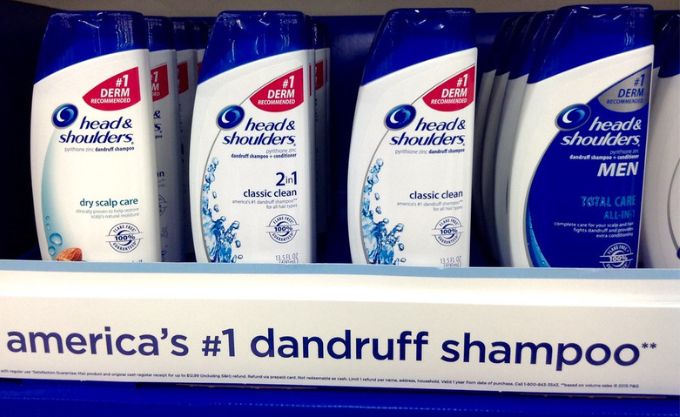
What Ingredients are Present in Head and Shoulders Shampoo?
Head & Shoulders shampoo is simply a bunch of ingredients put together to wash the hair and scalp. So, let’s take a moment to understand what is in that bottle sitting on your shower shelf. We need to know this because ingredients play an important role not just in a shampoo’s effectiveness but also in potential side effects.
Head and Shoulder shampoos and conditioners aren’t one-hit wonders. They are rich with ingredients - both active and inactive - that help cleanse the scalp and hair from dirt, oils, and of course dandruff.
Thinking about the ingredients? Well, let us first tell you about active ingredients:
Active ingredients
1 Zinc pyrithione
First up, we have zinc pyrithione (ZPT)! This champion has both antifungal and antimicrobial properties. You can say these are no less than weapons in the anti-dandruff arsenal. They can tackle seborrheic dermatitis - a pesky scalp issue that causes redness and flaking in men and women.
Although the science behind its exact action is a bit fuzzy, ZPT seems to work by:
Boosting scalp zinc levels: This ingredient might help zinc bind to proteins crucial for hindering the growth of fungal and bacterial activity on the scalp.
Chemical warfare: Zinc pyrithione can act like a microscopic bomb. It disrupts the structure of fungi and bacterial cells.
Starving microorganisms: It might deprive these microorganisms of vital minerals like iron, thus hindering their ability to thrive.
Copper overload: One study found that ZPT may increase copper levels in scalp fungus, stunting its growth.
Though Zinc pyrithione in Head and Shoulders shampoo is generally safe, some people may experience contact dermatitis. This can lead to scalp irritation and dryness. This isn’t necessarily hair loss but definitely not a pleasant side effect.
2 Selenium sulfide
Another dandruff-controlling champ one can find in Head and Shoulders! Selenium sulfide targets Malassezia (a type of yeast that contributes to dandruff problems and later hair loss). Similar to ZPT, it also has anti-seborrheic properties. However, selenium sulfide can sometimes cause:
Excessive oiliness: Meaning, this chemical is not ideal for those with already oily hair.
Yellow discoloration: Yes, this can be a bit of a hair-raising (pun) side effect.
Inactive ingredients
Time to put a spotlight on the support cast in Head and Shoulders shampoo. We are talking about none other than inactive ingredients. These, while not directly targeting dandruff, play a crucial role in shampoo’s functionality.
Quick rundown? Well, here it is:
Methylisothiazolinone: Commonly found in household products like paint, this preservative can cause contact dermatitis.
Sodium lauryl sulfate (SLS) and sodium laureth sulfate (SLES): You can think of these ingredients as detergent. Meaning, they cleanse the hair. However, SLS in Head and Shoulders shampoo has been linked to hair loss. It can be found in many types of regular shampoos rich in chemicals. SLS can also be more irritating to the scalp than SLES.
Sodium chloride: Sodium chloride simply thickens the shampoo for a more product-filled appearance.
Make sure to check out these informative blogs as well:
Antibiotics and hair loss
Tinea capitis hair loss
Telogen effluvium hair loss
Autoimmune hair loss
Lupus hair loss
Okay, so we have figured out that Head and Shoulders per se isn’t the reason behind hair loss and damage. It helps with dandruff and some other hair conditions that are often associated with hairfall.
What if My Hair Loss is Serious?
We learned that Head & Shoulders likely isn’t the villain behind your hair loss. But what to do if the hair fall situation feels quite serious? We understand that hair fall can be a confidence zapper, and it makes sense to tackle it before it becomes uncontrollable.
The first step is to consult a dermatologist. A good derm will be able to identify the real culprit behind your hair condition and recommend the most effective treatment plan. If your hair loss is neither genetic nor extreme, you will be able to recover in a few months.
In case your dermatologist says natural hair growth is a lost cause in the short run or you couldn’t deal with the side effects of medications, we recommend exploring the world of toupee hair replacement systems! Also known as hair systems, toupees, men’s hairpieces, and wigs, these recovery systems are designed using the finest materials. This means comfort, durability, and a natural look!
Modern hair systems are breathable, lightweight, and pocket-friendly. Imagine gaining a full head of hair that has life-like movement and looks hyper-realistic. That’s the difference delivered by Lordhair! Don’t believe us; check out this transformation!
No, Head and Shoulders Doesn’t Cause Hair Loss
We cracked the case of Head and Shoulders’ relationship with hair loss. As you learned, there isn’t a direct connection. However, that doesn’t mean that your hair loss isn’t related to your hair care routine. Consulting a dermatologist is always the best thing to do if you think your hair loss is related to products used for styling and personal care.
For those seeking a quick confidence-boost through a non-surgical solution, Lordhair hair systems are the best fit! Get in touch with us if you are interested in our units. Even if you have queries, we will be happy to answer them for you.

